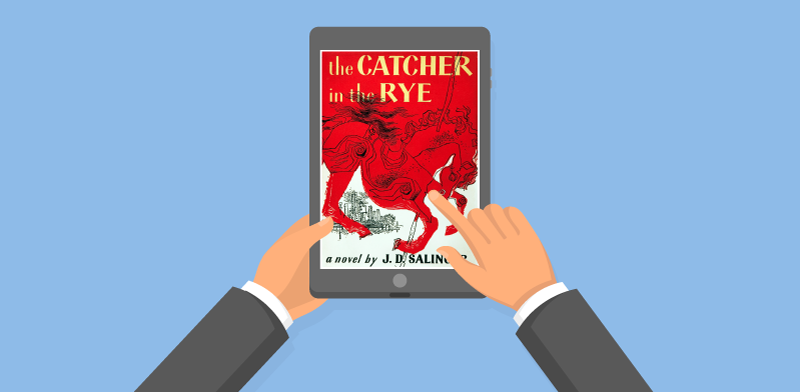If a picture speaks a thousand words then why are libraries still an ingrained part of our schools and education systems?
In modern society, the previous want and need for public libraries have declined immensely as their role has been taken over and improved upon by the ever growing and easily accessible catalogue of information available and uploaded daily on the world wide net. Contributing factors to the demise of libraries and their usage include: the decrease of paper waste, the increase in interactive visuals and the decrease of time spent searching and therefore increase in productivity.

With the rise of scientific discovery during the past half century many social and the world issues have been brought forth into the light they deserve when being discussed. One world issue that has gained significant support in that past couple of decades is the protection of the world’s natural resources and becoming as eco-friendly as possible in order to help make a better and sustainable planet for future generations. To help increase the lifespan of the planet scientists and activists across the globe have demanded governments to place restrictions and help decrease the taping of natural resources including lumber. Although one can plant new trees it can take up to fifty plus years for them to grow to satisfactory harvest size. In order to combat this dilemma educators worldwide have cut down on their paper use in school by handing out fewer homework sheets and encouraging tablet and laptop use for notes along with online interactive diagrams and questionnaires. It has also helped many students save money by purchasing textbooks PDF files instead of the bulky physical copies especially with certain schools taking the strides to make online textbooks for free available to their students. This social push has in response lead to the decrease of textbooks, biographies and other hefty educational reading materials that make up the majority of public and private school libraries internationally. Therefore, there should be fewer school libraries as they are the main fosterers of huge books made from wasted resources that are better left alone to help benefit future populations.

In addition to wasting natural resources, the cross over to online and downloadable files will be very beneficial to students who feel that their learning styles are very neglected and disregarded within the school system. This transition to the digital platform is a very positive change for students who are visual learners as opposed to verbal or logical learners who can manage purely with notes and textbooks. This change has been proven to help visual learners grasp concepts that they previously would’ve been unable to comprehend with visual and interactive aid such as online simulations for chemistry or pictures of diagrams for hard functions and calculus questions. Digital interaction also increases the chances for students to gain interest in the subject matter helping spark goals and innovation in a new group of future graduates. Furthermore, this ability to incorporate not only the traditional text explanations but also visual aid to particular problems pleases all student bodies as well as teachers who in the past had yearned for more graphic procedures to questions for students who in the past they were unable to provide practical solutions for. This insurgence of new wave teaching has eliminated the need for libraries with transcript crammed textbooks and study guides, furthering school libraries becoming obsolete.

Another factor contributing to the downfall of school libraries is the ease to control and decipher information on online interfaces. With the up rise of online PDF files for school work and readings the productivity of students also increases as computers have granted individuals the ability to search key words or phrases in seconds allowing student to find the needed information quicker without spending long chunks of time reading through books or articles paragraph by paragraph, chapter by chapter. This ability to do quick checks and refined searches allows students to focus longer on their writings and assignments without rushing and attempting to make up for lost time. This also enables students to focus on more precise details by quickly finding where throughout their assigned tasks key words appear, helping them form connections between different passages and sections, leading to a better formed and supported write-ups. Additionally, online libraries and their ease of access allow more room for multitasking which can be very helpful when a student is facing multiple assignments with upcoming deadlines in a close time frame. The overall online material helps improve students’ productivity and helps them improve their time management which in response lessens the demand for in school libraries along with libraries as a whole substantially by the masses.

To be brief, aspects such as sustaining natural resources, increase interaction and special graphics as well as the increase in time management and productivity have contributed to the approaching expiration of libraries and their usefulness. The prior crave and a requirement for the public, private and in school libraries has deteriorated vastly as their function have been filled and developed upon by the emergent of easily accessible and navigated log of material and statistics available to be inspected by the click of a mouse on the internet in contemporary society.
Original source Antiques of the Past; Libraries and their Roles in Education

Комментарии
Отправить комментарий